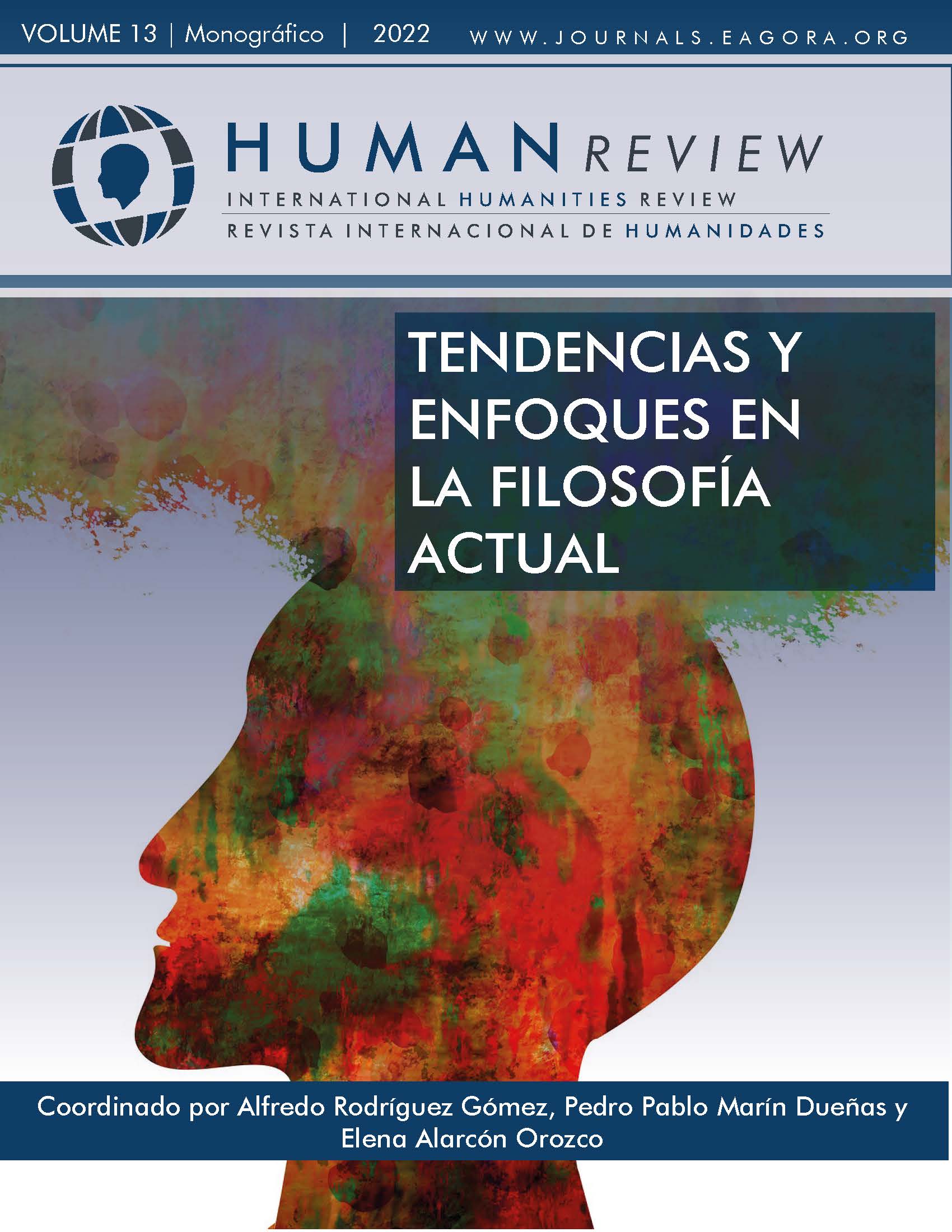Reconsidering the paradigm “death” form transhumanism
Will death remain only and illusion?
Keywords:
Death, Ageing, Technology, Transhumanism, Inmortality, BioethicsAbstract
The transcience of existence, the fragility of life and human transcience do nothing but remind each of us of the imminence of death, now experienced as an unparalleled tragedy, accompanied, often, by the anguish of witnessing a slow and gradual ageing of the body. In the post-modern era characterized by pervasive technology, a new religion is emerging that aims to halt the ageing process and defeat death once and for all. But what is the price to be paid: according to some, we will witness the dissolution of the human being’s soul; according to others, the world will be populated by humanoids with severe psychic problems.
References
Ariès, P. (1978). Storia della morte in Occidente: dal medioevo ai giorni nostri. Rizzoli.
Blasco, M. (2019, 15 luglio).Telomeres and Telomerases with María Blasco. urly.it/3pd8a.
Bostrom, N. (2003). The Transhumanist FAQ -A General IntroductionVersion 2.1 (2003).
Bostrom, N. (2006). Why I Want to be a Posthuman When I Grow Up. [Published in: Medical Enhancement and Posthumanity, eds. Bert Gordijn and Ruth Chadwick (Springer, 2008), 107-137. https://nickbostrom.com/posthuman.pd.
Cera, A.(2018). Il fenomeno “vivente”.Etica & Politica , XX, 1, 317-324. urly.it/3pd91.
Cortina, A., & Serra, M. (2015). ¿Humanos o Posthumanos? Singularidad Tecnológica y Mejoramiento Humano. Fragmenta Editorial.
Dante, A. (1321).La Divina Commedia. Paradiso, 6. Fabbri Editore 1963.
De Martino C. (2019).Pensare filosoficamente le trasformazioni. Provando a rispondere di un testo. Etica & Politica / Ethics &Politics, XXI, 2, 287-313.
Diéguez, A. (2019).¿Podremos vencer a la muerte? Pasajes 57, 6-17.
Domínguez, E.J.(2020). Vencer a la muerte. Crítica antropológica y teológica del proyecto transhumanista.LogosAn. Sem. Met. 53, 65-80.
Fukuyama, F. (2002). L’uomo oltre l’uomo. Le conseguenze della rivoluzione biotecnologica, Mondadori.
Galeazzi, G.(2020, 5 marzo). “Un tempo contro le epidemie si pregava, oggi si chiudono le chiese”La Stampa. https://www.lastampa.it/vatican-insider/it/2020/03/05/.
Heidegger, M.(2004).L’abbandono, il Melangolo, Genova 2004, 36.
Heidegger, M. (2005).Essere e tempo, Longanesi.
Huxley, J (1957).New Bottles for New Wine”, Londra, Chatto &Windus, 13-17.
Kurzweil, R.(2001).The Law of AcceleratingReturns. https://www.kurzweilai.net/
Kurzweil, R. (2008).La singolarità è vicina, Apogeo.
Llamas Covarrubias,J.Z.(2020). Derechos Humanos, Transhumanismo y posthumanismo: una mejora tecnológica humana,85-108.
Llano, Fernando H. (2019). “Transumanesimo, vulnerabilità e dignità umana”. Deusto Journal of Human Rights , n.4 (dicembre), 39-58. https://doi.org/10.18543/djhr-4-2019.
More, M.(1990). Transhumanism. Towards a futuristphilosophy, 1-7.
Minsky, M.L. (1994).Will Robotsinherit the earth?, Scientific America, 271 (4),109.
Palazzani, L. (2015. Il potenziamento umano. Tecnoscienza, etica e diritto. Giappichelli, 1-172.
Pessina, R. (2019). La tecnica ed il problema della negazione. Il pensiero storico. Rivista internazionale di storia delle idee, 6, 1-10. urly.it/3pc0d.
Pérez Tapias, A., (2020).De la «muerte del hombre» al transhumanismo. La parrhesía foucaultiana ante la pretensión de homo. Pensamiento, 76(290), 657-677.
RedazioneBlitz(2018,9 gennaio). Ibernazione e sospensione criogenica: così la scienza (e Google)sognano l’immortalità. https://t.ly/wm-E.
Suárez-Ruíz, E.J. (2021) “¿Transhumanismo predarwiniano? Normatividad fuerte y débil en la perspectiva transhumanista”, en Logos. Anales del Seminario de Metafísica 54 (2), 555- 557.
Testoni, I. (2021). Il grande libro della morte. Miti e riti dalla preistoria ai cyborg. Il Saggiatore.
Carta dei diritti fondamentali dell’UE(2000).https://europarl.europa.eu
Convenzione europea dei diritti dell’uomo (1950).https://conventions.coe.int
Cyborg Bill of Rights(2016).https://www.cyborgfoundation.com
Unione Europea (2021)Commissione Europea, Proposta di Regolamento, che stabilisce regole armonizzate sull’intelligenza artificiale (legge sull’intelligenza artificiale) e modifica alcuni atti legislativi dell’unione, 21.4.2021, COM (2021) 206. urly.it/3pc0f.
Unione Europea(2015)Commissione concernenti norme di diritto civile sulla robotica (2015/2103(INL) https://www.europarl.europa.eu/portal/en.
Unione Europea (2020) Il libro bianco sull’Intelligenza Artificiale. urly.it/3pc0k.

